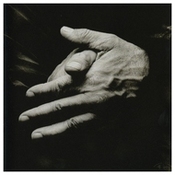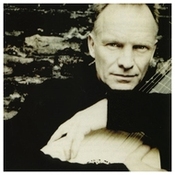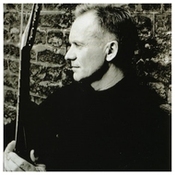
Songs From The Labyrinth
Dec
8
2008
Singapore, SI
Esplanade Hallwith None
Sting, from two perspectives...
Rock star Sting did classical in concert. How did he fare? A classical critic and a pop fan give their verdicts.
Much like the album that interesting mishmash of classical and 'pop' production values.
Despite relying on electronic amplification - considered a sacrilege in classical settings - there was the intimacy of a chamber concert. Sting sang with an immediate, straightforward approach that placed emphasis on the text. I was impressed with his singing of In Darkness Let Me Dwell, a slow 'ballad' where he imbued his grainy voice with a dark melancholic texture, bringing out the sadness of the music.
There was much dulcet sweetness in the voice as he held the long sustained notes of the song.While he kept things subtle with minimal gestures and a black outfit, I was amused by Karamazov's flamboyant look - the very antithesis of the classical performer. He wore a velvet coat over a yellow T-shirt and tossed his shoulder-length hair in between virtuosic plucking.
This classical music ignoramus wanted to shout 'Roxanne!' during the encore just to see how many heads would turn in disapproval.But the stunt proved unnecessary, for Sting himself eventually acknowledged what 99 per cent of the well-heeled audience (approximately 1,000-strong) at the Esplanade were probably there for: the Police frontman, not so much John Dowland, the 16th-century English composer whose songs Sting covered with Bosnian lutenist Edin Karamazov.
Towards the end of his 75-minute set (including two encores), Sting segued into non-Dowland songs, saying he believes, but cannot prove, that there is a strain of music influenced by Dowland that has carried on through the ages. There was a song from 1898 (Where The Corals Live) and another from 1912 (Linden Lea).
Then came 'a song from the '60s'. The opening notes of the Beatles' 'In My Life' immediately brought the crowd to life. Compared to the tentative appreciation shown during the Dowland songs, the applause practically demonstrated roaring approval, tinged with relief.
(c) New Straits Times
Rock star Sting did classical in concert. How did he fare? A classical critic and a pop fan give their verdicts.
Much like the album that interesting mishmash of classical and 'pop' production values.
Despite relying on electronic amplification - considered a sacrilege in classical settings - there was the intimacy of a chamber concert. Sting sang with an immediate, straightforward approach that placed emphasis on the text. I was impressed with his singing of In Darkness Let Me Dwell, a slow 'ballad' where he imbued his grainy voice with a dark melancholic texture, bringing out the sadness of the music.
There was much dulcet sweetness in the voice as he held the long sustained notes of the song.While he kept things subtle with minimal gestures and a black outfit, I was amused by Karamazov's flamboyant look - the very antithesis of the classical performer. He wore a velvet coat over a yellow T-shirt and tossed his shoulder-length hair in between virtuosic plucking.
This classical music ignoramus wanted to shout 'Roxanne!' during the encore just to see how many heads would turn in disapproval.But the stunt proved unnecessary, for Sting himself eventually acknowledged what 99 per cent of the well-heeled audience (approximately 1,000-strong) at the Esplanade were probably there for: the Police frontman, not so much John Dowland, the 16th-century English composer whose songs Sting covered with Bosnian lutenist Edin Karamazov.
Towards the end of his 75-minute set (including two encores), Sting segued into non-Dowland songs, saying he believes, but cannot prove, that there is a strain of music influenced by Dowland that has carried on through the ages. There was a song from 1898 (Where The Corals Live) and another from 1912 (Linden Lea).
Then came 'a song from the '60s'. The opening notes of the Beatles' 'In My Life' immediately brought the crowd to life. Compared to the tentative appreciation shown during the Dowland songs, the applause practically demonstrated roaring approval, tinged with relief.
(c) New Straits Times




